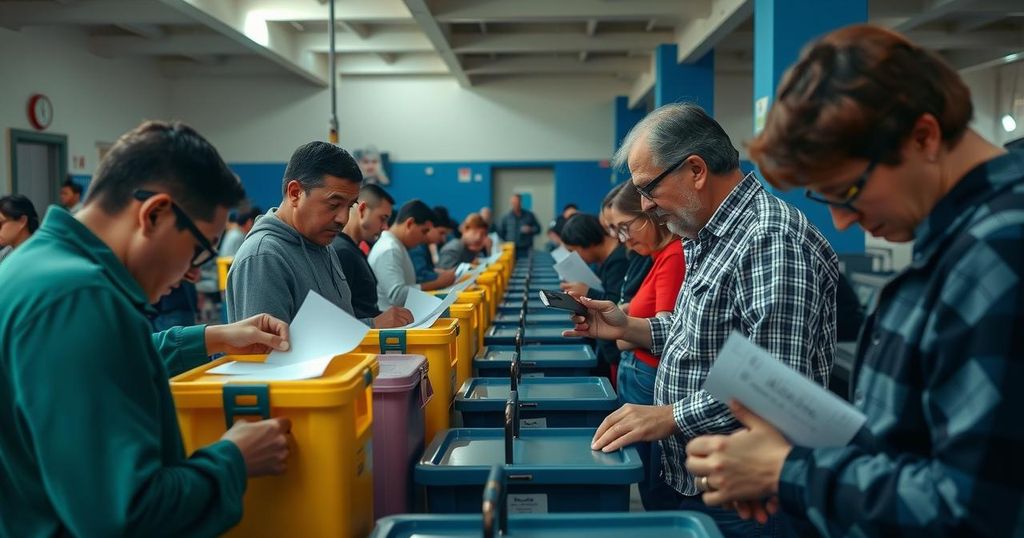Uruguay is poised for a general election featuring centrist candidates Yamandú Orsi of the Frente Amplio and Álvaro Delgado from the ruling National Party. Amid rising concerns about crime and social issues, citizens will decide on the presidency as well as a significant constitutional referendum affecting social security. The election proceeds in a notably calm atmosphere, contrasting with political unrest in nearby nations.
Montevideo, Uruguay is gearing up for an upcoming general election that will feature two prominent centrist candidates competing for the presidency in one of Latin America’s most stable democracies. This election takes place against a backdrop of political tranquility, contrasting sharply with the turbulence seen in neighboring nations. Voters face a choice between Álvaro Delgado of the ruling National Party, who is supported by the incumbent conservative coalition, and Yamandú Orsi of the Frente Amplio, a moderate left-wing alliance. The electoral atmosphere remains calm, marked by a consensus among the major parties on various issues. The focus of the campaign revolves around significant concerns such as child poverty and security, as rising crime rates have become paramount even though Uruguay is considered one of the safer countries in the region. Political analyst Juan Cruz Díaz emphasizes the peace and stability in Uruguay, suggesting that “in a way, Uruguay has been boring, but boring in this sense is very good.” The current president, Luis Lacalle Pou, who is prohibited from seeking re-election due to constitutional term limits, holds a 50% approval rating as he exits office. His successor, Álvaro Delgado, a former congressman and chief of staff, has presented himself as a continuity candidate, stating, “This government leaves us with a very solid first level to continue building the future.” Yamandú Orsi, representing the Frente Amplio, has a history of public service as a former mayor and emphasizes his relatable persona in his campaign, suggesting a lifestyle in touch with ordinary citizens. Polls indicate that Orsi leads with approximately 44% of voter support, though he may not achieve the required majority to win outright, potentially leading to a runoff. In this election, voters will also elect a vice president and parliament members, alongside a constitutional referendum that proposes substantial changes to Uruguay’s social security system. This controversial proposal has attracted attention due to its implications for fiscal policy and social equity, but both leading presidential candidates have expressed opposition to it. Additionally, another referendum will address the legality of nighttime police raids, emphasizing the significant issues at stake in this election.
Uruguay is known for its robust democratic practices and political stability, distinguishing it from its more turbulent neighbors in South America. This election represents not only a routine political transition but also a reflection of the citizens’ satisfaction with the government’s performance, particularly concerning economic management and social policies. Historical context, such as the long tenure of the Frente Amplio coalition and its progressive reforms, adds depth to the current political landscape. The nation prepares to exercise its democratic responsibilities while engaging with critical issues such as social security reform and public safety, underlining the mature state of its electoral politics.
The upcoming election in Uruguay illustrates a rare instance of political stability and general consensus among the leading candidates, contrasting with the political turmoil faced by other countries in the region. The electorate’s focus on pressing social issues such as poverty and safety further highlights the mature democratic processes in place. With a high voter turnout expected, the results will not only shape the future political landscape of Uruguay but will also have wider implications for social policy within the country.
Original Source: apnews.com






